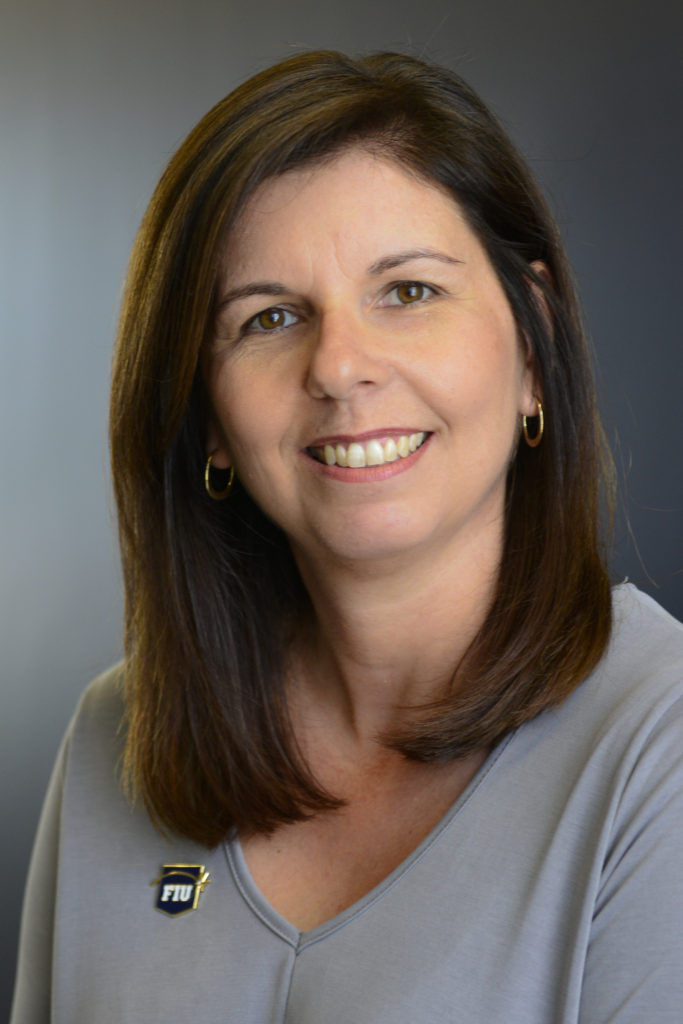Michelle Hospital, Florida International University – Youth Music Programs and the Five C’s
 Learning to play music could foster important skills for life.
Learning to play music could foster important skills for life.
Michelle Hospital, research associate professor in the department of biostatistics at Florida International University, says it’s not just about the music, but who you play it with.
Dr. Michelle Hospital is the Associate Director of Research and Development of FIU’s Community-Based Research Institute (CBRI). She also currently serves as a co-leader of South Florida’s first Health Disparities Research Center at a Minority Institution (RCMI) from the National Institute on Minority Health and Health Disparities (NIMHD). She graduated from Florida International University with a doctoral degree in Applied Life-Span Developmental Psychology. She received an M.S. in Counseling Psychology at FIU and a Bachelor of Business Administration (BBA) from the University of Miami with a concentration in Accounting. She is also a Licensed Mental Health Counselor in the State of Florida (LMHC License # MH 9226). Dr. Hospital completed her Post-Doctoral training in advanced statistical analyses including Structural Equation Modeling (SEM) and Growth Curve Modeling (GCM) as well as national weighted longitudinal datasets. Dr. Hospital also currently serves as the Chair of the FIU Health Sciences Institutional Review Board (IRB).
Dr. Hospital has served as a co-investigator for over 10 NIH and other federally funded grants including multiple R01 randomized clinical trials (RCTs). She has served as the primary internal evaluator for a multi-year National Science Foundation (NSF) grant. She has extensive experience conducting school and community-based prevention research. Dr. Hospital and her colleagues at CBRI have been awarded more than $50 million in extramural grant funding from federal agencies (e.g., NIDA, NIAAA, NIMHD and SAMHSA) and other private foundations (e.g., Aetna Foundation and Ware Foundation).
Dr. Hospital is a first generation Hispanic, fully fluent in Spanish, and has a particular interest in working on health disparities research. Her clinical and research interests have been primarily centered on the reduction of risk behaviors and the promotion of well-being among adolescent and young adult diverse populations. She has served as the principal investigator of multiple funded community-based research studies evaluating the impact of positive youth development programs (e.g., music education, mindfulness, yoga and equine facilitated psychotherapy) among at-risk urban youth.
Dr. Hospital has mentored, trained and supervised dozens of undergraduate, Masters, and Doctoral students as well as Post-Doctoral Fellows from various disciplines including Psychology, Social Work, Public Health, Nursing, Biology, Dietetics and Nutrition and Women and Gender Studies.
Youth Music Programs and the Five C’s
Can music education increase a child’s sense of hope? Can learning to play music enhance a child’s ability to be resilient?
Nearly 40% of children in the United States live in low-income families and are at risk for experiencing multiple kinds of trauma. Enhancing social emotional skills are critical for children to counterbalance these risk factors.
Many after-school community youth programs provide a natural and safe space for children to learn and practice these soft skills.
Recently, my team and I studied how an innovative after-school group music program affects the skills of competence, confidence, caring, character and connection, or the 5 Cs essential for positive youth development.
This three-year study evaluated the social behaviors of 180 children aged 8 to 17 who participated in a program inspired by the internationally recognized El Sistema music education philosophy.
This program uses musical instruction as a tool to foster essential life skills that help children lead successful lives.
Our study found that participants showed significant increases across all 5 Cs.
We also found that this orchestral model of music instruction, offers students cognitive benefits, as well as other social and emotional enhancements, when compared to similar youth who had not participated in the program.
This study presents empirical documentation of the numerous meaningful ways this ensemble music program impacts its youth, presumably as a result of learning in an environment that requires disciplined social cohesion.
These findings point to the urgent need to fund non-traditional community programs that disrupt the status quo and use innovative holistic approaches to foster positive youth development.


